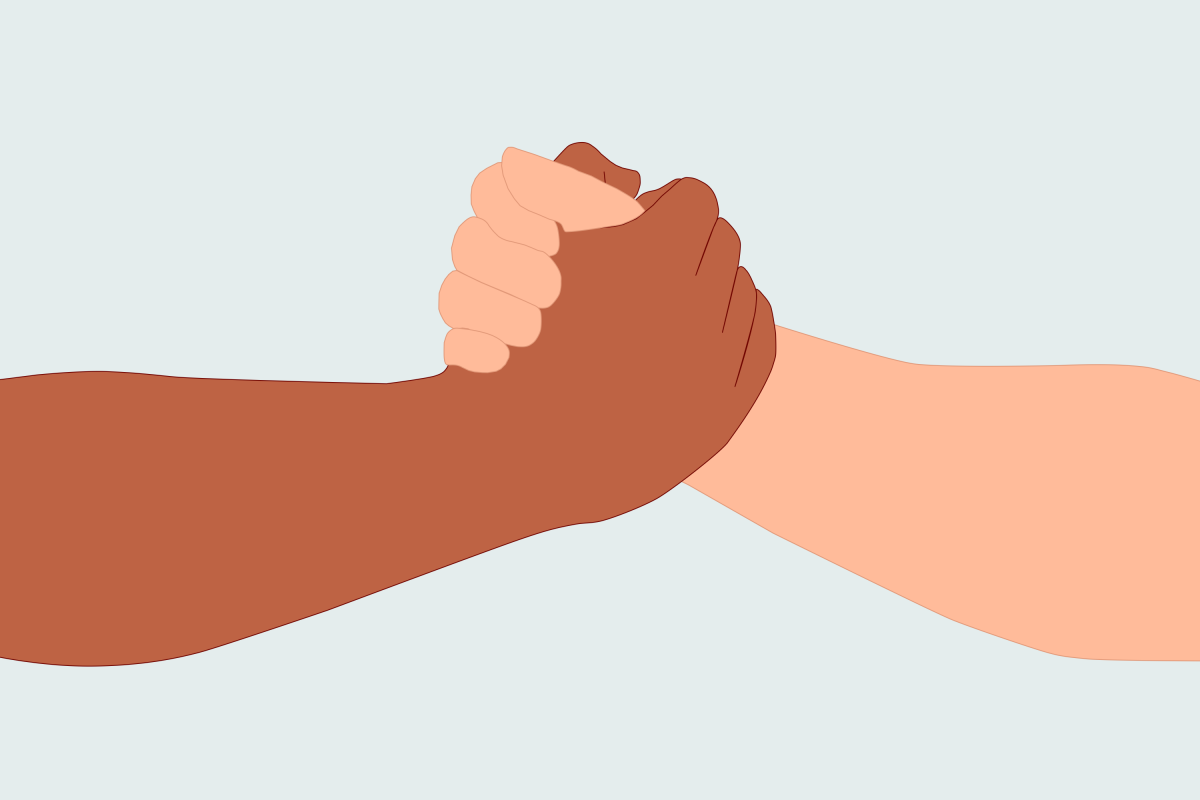Navigating friendships, relationships and social situations has always been an inevitable part of college, but covid-19 has made it increasingly more challenging.
Phyllis Anastasio, Ph.D., professor of psychology, said she has noticed the impact the pandemic has had on St. Joe’s students in the last year.
“[Students] completely fell apart,” Anastasio said. “We come to college for new experiences, to meet new people, to get new ideas from new people, and none of that was really available.”
Anastasio’s observations align with what other researchers have found. According to a 2021 Covid-19 Social Study by the University College London, 22% of adults who participated in the study reported a “complete breakdown of a relationship” with family, friends, colleagues or neighbors throughout 2020 and 2021.
Anastasio said she believes we are still reeling from the cumulative effect of the continuous feeling of having a lack of control over our lives.
“We cannot walk around freely like we did before, go to movies, go to eat in the cafeteria,” Anastasio said. “It’s curtailing that feeling of control, and also it’s really limiting our social life, and it’s limiting the number of people we can deal with.”
According to Anastasio, one negative effect was the accumulation of minor irritations confronted by housemates.
“The little irritations that we may have with the people that we live with on a daily basis just become exacerbated,” Anastasio said. “What would not have bothered us before I think we find very irksome and troublesome, and we focus on it, and maybe even obsess about it to some extent.”
Increased time spent on electronic platforms in recent years hasn’t helped, according to Greg Nicholls, Ph.D., director of Counseling and Psychological Services (CAPS).
“Over-reliance on remote communication (e.g. Facetime, Zoom) is stressful because in the absence of non-verbal cues, that are perceived more easily in-person, we strain to try to understand the other completely;become more fatigued, less compassionate and misunderstandings are more frequent,” Nicholls said in an email to The Hawk. “Thus, friendships can be compromised.”
Negative social effects also stem from self-consciousness that is apparent in many young adults, according to Jenna DiLossi Psy.D., co-founder and clinical director of the Center for Hope and Health. Because students have had to put themselves out there in ways they may not have had to before to initiate plans, they began to isolate more and attend fewer social events due to the fear of rejection or the discomfort of reaching out to others, DiLossi said.
“Because [students are] then just retreating and isolating a bit more … they’re not using their social skills as much,” DiLossi said. “The longer you avoid something, the more it becomes anxiety provoking, and the more you run the risk of losing your skills.”
While DiLossi thinks social skills that have weakened will return with time, and with proactive treatment for some, she said being aware of how situations have psychologically affected you is always important.
“I think one of the most psychologically damaging things for people is when we’re not clued into ourselves, when we’re not aware of things,” DiLossi said.
DiLossi recommends personal reflection. Some questions to ask yourself may include:
“Why am I now afraid to go out?”
“Why am I afraid to send this text to my friend?”
“What are my thoughts? Is this a true thought? This thought is in my way, but is it grounded in reality?”
DiLossi said being accountable to ourselves can promote growth or re-growth in socialization.
“It’s essentially going to require breaking this pattern and habit of comfort,” DiLossi said. “You can do that with a professional, or you can attempt to do it without a professional and employ some of the similar strategies.”
Another aspect for students to reflect on is how their relationships have evolved, or may have grown to be strained due to the situations that presented during isolation.
According to Nicholls, red flags in friendships may include feelings of the relationship being one-sided and continuous negativity.
“There should be mutual trust,” Nicholls said. “But if you find that a certain friendship is consistently one-sided, it’s a red flag, it’s not mutual. Also a friend who is consistently negative and pessimistic can be hard to be around. Such an attitude can be contagious and negatively impact the mood and emotions of those in their company.”
Anastasio said that other warning signs of strained or unhealthy relationships could include a lack of mutual validation.
“If a person continues to feel taken advantage of, that the other person doesn’t have their back, then there’s an inequality in the relationship,” Anastasio said.
In the event that a person finds themselves in an unhealthy relationship, Anastasio recommends first reflecting in a quiet, calm place, and then weighing whether or not the irritation is important or a result of another factor. If it is important, it should then be respectfully discussed with the other person.
An additional path, although difficult, may be to take a break.
“If one does feel like they’re in that situation, [they could] try to find other people that they feel they can be themselves with,” Anastasio said. “That’s the most important thing, being with people that we feel that we can really be ourselves with and who value that person.”












































